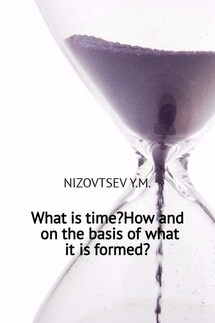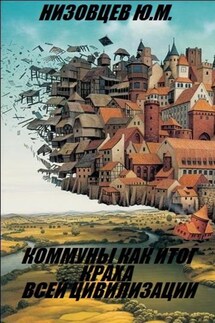The driving force and source of development of the person and his communities - страница 3
The activities of God's chosen personalities, as follows from the definition of this driving force of development of communities, clearly points to supervisor of this force, that, on the one hand, expresses external character this force, and on the other hand, the definition unites Christianity with Muslim fatalism depriving autonomy all historical development.
Wars cannot be the primary cause of the community development – they are not even secondary, but tertiary factors that affect civilizational development, since, as a rule, they are being caused by a conflicts in relation to property and resources between the elites of different states.
Unfavorable resource and geographical location, as it is visible from real historical examples, is capable not only to promote (Japan), but also to slow down, development of communities (Pakistan) as well as not to influence this process (Bulgaria) at all. Therefore, these factors cannot be qualified as primary driving forces of social development.
P. Lavrov argued that the critical consciousness of the intelligentsia is the driving force of social development.
In this respect, Peter Lavrov noted: "Philosophical ideas are important not as a manifestation of the process of development of the spirit in its logical abstraction, but as logical forms of consciousness by a person of higher or lower dignity, more extensive or closer goals of own existence; they are important as a form of protest against the present in the name of the desire for a better and more just social order or as the forms of satisfaction by the present" [12, p. 19-28]; "Ideals of a person's life are realizable only in society; but – society, as an ideal unit, finds its real realization only in the unity of personal goals. At all the division of parties, at the struggle of opinions, at the struggle of interests, only then the struggle is reasonable, useful for society and progressive, when the disputants are on the same soil and represent only different aspects of the human moral ideal. As soon as there is nothing in common between disputants, once human dignity has lost its guideline importance in the struggle of individuals and masses, only a catastrophe that completely changes social forms and personal relationships can lead to progressive development"[13, 506-507].
The critical consciousness of the intelligentsia under certain conditions can lead not to development, but to the regress of the community, to the decline of the whole state.
A significant compromise between the power elite and the informal opposition in the person of intellectuals is impossible, inasmuch the imperious elite never voluntarily will make serious concessions and never voluntarily will concede the power. However, if on average the level of the highest consciousness at her representatives is not too low, and the criticism from oppositional intellectuals is effective, implicating involving the broad masses of the population in the protest movement, then the imperious elite can be inclined to reforms as it, for example, was being occurred the last hundred years in Europe.
Otherwise, instead of smooth reforms the case may end with the complete replacement of the imperious elite, the overthrow of the state system, and even to the changing economic relations, as it has been happened in Russia in 1917.









